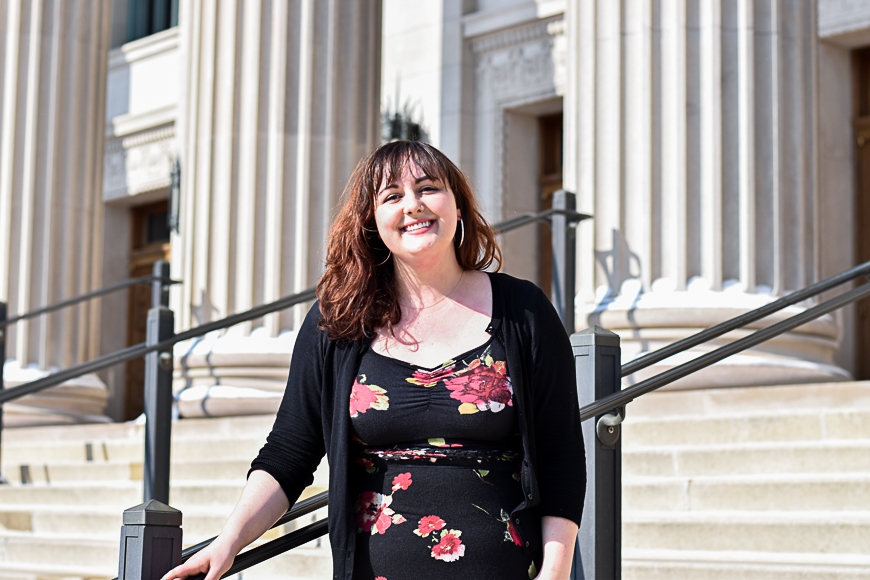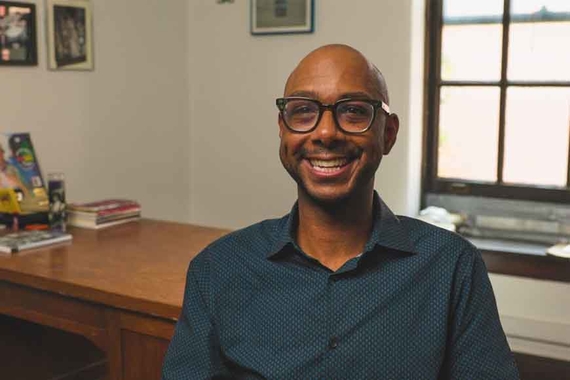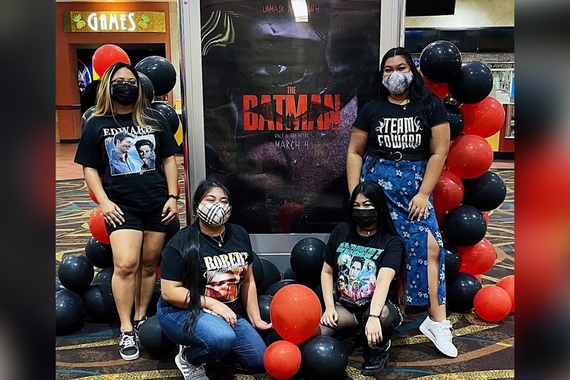Breaking Away: Freedom for Cultural Feminisms and Food Justice
Comfort food. It’s just a couple blocks away at your local grocery store whenever you're craving it, right? Your favorite food is located just halfway down aisle three. Unfortunately, not everyone shares that same food privilege. Culturally appropriate foods can create a sense of peace and comfort in Indigenous and immigrant cultures—so what happens when they are not stocked at the store?
Madeline Brennan, a senior double-majoring in American studies and cultural studies & comparative literature, is deeply devoted to social justice of culture, gender, identity, and food. Originally planning to pursue political science, she changed course after taking an American studies class. She fell in love with American studies’ intersectional approach to research and teaching and chose cultural studies and comparative literature because of its theoretical and philosophical approach anchored in contemporary culture and politics. “Cultural studies and comparative literature focuses on popular culture and so does American studies. They are very compatible,” she says.
Brennan’s majors have given her complementary perspectives. “American studies has taught me a lot about U.S. history and politics as well as research methods, whereas, cultural studies and comparative literature has taught me a lot about how to view popular culture through a theoretical lens.” She wishes people knew American studies is “a broad title that spans many disciplines surrounding history, politics, and the influence of popular culture.” It is a flexible major that allows students to create their coursework and their research the way they want to. “Every class makes me remember why I picked it,” she reflects.
Not only do her majors give her the freedom to explore a wide variety of topics, but her coursework has prepared her to pursue a career in which she can collaborate with people from local neighborhoods, listen to their needs, and think critically about solutions to problems they face—critically, without becoming a “white savior.”
Food Justice
Brennan is well on her way to her dream job. She is currently applying for jobs supporting urban farms that are concerned with food justice and culturally appropriate foods. Food justice ensures that local grocers, such as co-ops, have affordable foods that are also accessible to nearby neighborhoods. Culturally appropriate foods are foods indigenous and immigrant populations are familiar with. An example Brennan gives is initiatives in the Phillips neighborhood of Minneapolis "seen in the urban farm where Mashkiikii Gitigan's work helps restore Native foodways by teaching Native corn growing and harvesting.” Another local example in Minneapolis is halal camel milk and meat for Somali populace in the Cedar-Riverside Neighborhood.
Her work in American studies brought her attention to indigenous and immigrant marginalized peoples—especially locally. “I want to look at how food can help communities,” she explains, “and also help heal them by getting their physical needs met and support culturally appropriate food initiatives.” Access to familiar cultural foods can make the transition to life in the US easier for new Americans, helping avoid difficulties assimilating for immigrant populations. Brennan hopes to break this cycle by pursuing a career that follows responsible food initiatives.
Empowering Gender Roles
Brennan is currently completing her senior project under the direction of American studies’ chair, Professor Brenda Child. “She's really supportive,” Brennan says, “always gives great suggestions and challenges me, which has been super valuable.” The professional emulation in her senior thesis class has provided her with invaluable real-world experience. “The department feels like a professional research environment in which you have colleagues and present your findings for the week,” Brennan says. Her classmates, whom she sees as both colleagues and friends, meet for two hours each week to brainstorm actions that will further their topic exploration.
Brennan’s project analyzes ways that traditional binary gender roles (for example, having men work outside the home while the women do housework) are imposed on Indigenous peoples, and how that can be harmful. “I want to learn how gender and gender roles within Indigenous communities are seen as an empowering thing,” she explains. “That might help build movements, work toward sovereignty, and care for their communities by embracing certain gendered roles.” Furthermore, her research ignites conversations about how “colonization erased most traditional gender configurations, such as matriarchal governance, where the head of the family is a woman, in many Indigenous cultures.” Brennan explains that the erasure of traditional gender configurations and matriarchal governance happened “because of the imposition of Western patriarchy and capitalism.” As with access to culturally appropriate foods, gender roles practiced in communities and cultures before they were colonized, or came to America, can be a source of identity and comfort. Unsurprisingly, Brennan has found that her areas of research intersect.
Scholarly Recognition
Brennan is a winner of CLA’s prestigious Selmer Birkelo Scholarship, which allows her to apply for jobs and internships that do not have the means to pay more than minimum wage. “I want to be able to work jobs that mean a lot to me that don't pay very well,” she explains.
The financial support has also allowed her more time to do research, such as a small analysis she did on the lack of representation in Bustle, a women’s magazine, which she presented in a twenty-page paper. Brennan noticed the publication “almost exclusively featured white women with diverse body types and very few women with disabilities or women of color.” She criticized Bustle’s lack of diversity and representation in her research project. She reflects saying, “You can't normalize something by just having a token representation that is embedded within whatever politics you're trying to remodel. It has to be inherently diverse. Diversity can't just be sprinkled on top.” Her study of print media and feminism is yet another project she can showcase in her ever-growing social justice portfolio.
Reflecting on Her Studies
Looking back on her four years in the department, Brennan values the lessons her professors have taught her, but Assistant Professor Elliott Powell stood out. Brennan’s view on how teaching is approached was changed in Powell’s Prince class. His teaching style allowed students to choose the focus of class to deepen their understanding of the subject matter. “The way he conducted class was something I had never really experienced before,” Brennan says. She also appreciates her graduate student instructors, who incorporated social media, popular culture, and even memes into class discussions as important topics to American cultural phenomena, which helped Brennan connect her education to her everyday life.
As graduation rapidly approaches, Brennan’s next steps are to work in food justice and culturally appropriate food initiatives while applying to graduate school. She hopes to pursue a program in American studies or cultural studies but is also considering law with a focus on labor law. She hopes to find a program that values community ideas, voices, and cultures the way she does.
This story was written by an undergraduate student in CLA.



